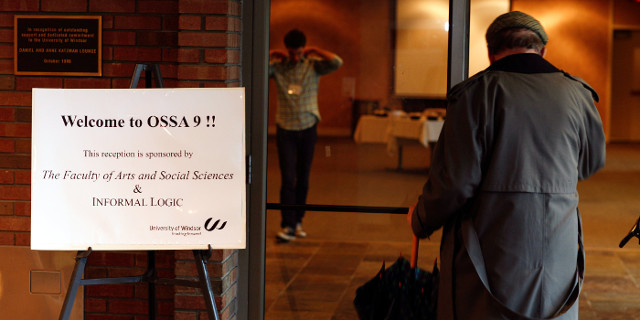
Location
University of Windsor
Document Type
Paper
Keywords
conflict resolution, conflict management style, cognitive account, emotional argument, emotionalizing, normative, rhetoric, temperament
Start Date
18-5-2011 9:00 AM
End Date
21-5-2011 5:00 PM
Abstract
In a recent paper (ISSA 2010), Groarke proposes a view of emotional arguments that seems too narrow. While his notion of pathos and emotional arguments may aid in the development of normative analysis, it is not sufficient in addressing all emotional arguments and is guilty of strictly adhering to the tradition’s conception of emotion’s place in argumentation. I suggest an alternative evaluation of emotional arguments - relying on Walton’s dialogue types and goals as its foundation.
Creative Commons License

This work is licensed under a Creative Commons Attribution 4.0 International License.
Included in
The evaluation of emotional arguments: a test run
University of Windsor
In a recent paper (ISSA 2010), Groarke proposes a view of emotional arguments that seems too narrow. While his notion of pathos and emotional arguments may aid in the development of normative analysis, it is not sufficient in addressing all emotional arguments and is guilty of strictly adhering to the tradition’s conception of emotion’s place in argumentation. I suggest an alternative evaluation of emotional arguments - relying on Walton’s dialogue types and goals as its foundation.
